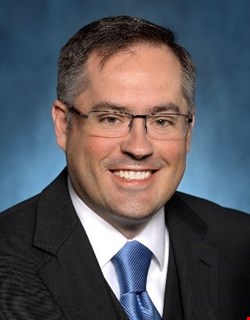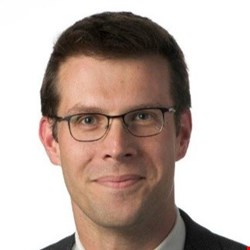The cybersecurity sector is going through a transformative period, with industry professionals in a constant cat-and-mouse race against cybercriminals’ evolving tactics and use of innovative AI tools.
The proverb “necessity is the mother of invention” has held true in cybersecurity, with major improvements observed in industry practices to enhance efficiency and tackle sophisticated threats.
Throughout 2024, Infosecurity spoke to numerous cybersecurity leaders to hear their perspectives on what they consider to be the biggest successes they think the cybersecurity industry is experiencing today.

Improving Transparency and Compliance
Luke Kiely, Group CISO, GetBusy
“Organizations have made significant progress in their compliance levels. And even more importantly, companies are starting to see the value of it.
Also, I feel like there is a general move towards better transparency in businesses, including when it comes to their security posture.”

Collaboration and Education
Gina Gobeyn, Executive Director, PCI Security Standards Council (PCI SSC)
“For payments, we are working closely with our stakeholders and solving difficult challenges. We are proud of the record involvement from our community in the development of PCI DSS v4.0 and the high level of interest in our standards and programs.
The PCI SSC has been successful in taking a lot of risk off the table and we continue to educate the marketplace on the best ways to protect payment data. Those efforts are ongoing and will continue to evolve, but we are enormously gratified with the progress we have made as an industry, and the increase in collaboration that is so vital to these efforts.”

Cybersecurity Awareness is on the Rise
Jason Manar, CISO, Kaseya
“The biggest success is the fact that people are talking about cybersecurity. If you go back 15 years or even 10 years ago, people weren’t talking about cybersecurity as much as they are now.
We are not just waiting until October [for Cybersecurity Awareness Month] to talk about cybersecurity. I think one of the greatest things is the fact that this is not a once-a-year thing, it’s an everyday thing that we have to take care of.
Every single user, regardless of their knowledge level and experience, has to become what I would call a cybersecurity warrior. They have to learn what they can do to help their institution as well as themselves to become more secure day in and day out, which in the end will help institutions and society to be better protected.”

Evolution of Security’s Role in the Business
Jerry Geisler, SVP and Global CISO, Walmart
“It goes back to the evolution in the mindset around security. When I first came into the industry, security teams were often viewed as the department of no. Security teams were seen to some extent as an impediment or a point of friction, and that thinking has changed.
Philosophically speaking, I want our business to win. I am thinking about my role in helping the business win. That’s not to say that we in any way minimize our remit as security practitioners, but we want start with that business strategy and how we enable our technology partners to achieve that strategy in a way that doesn’t allow the organization to experience untenable risk. That evolution in thinking has been the biggest win.”

System Resilience to Attacks
Bob Leek, Chief Information Officer, Clark County, Nevada
“A success is the investment we have made in cybersecurity; we probably thwart a million event or attempts to compromise our systems a week.
It is now important to measure the success of all the investments.
One measure is how we respond to cyber-events, such as whether we isolated it. Another way is quantifying how many attacks we’ve been able to fend off before they disrupt our systems. That’s a positive outcome because it means our systems continue to be up and available.”

Using Tech to Improve Efficiency
Megan Poortman, Head of Cyber Security, London Gatwick Airport
“The biggest success is working with strategic partners in cybersecurity to understand the kind of mundane tasks we can automate to get that initial triage out of the way. We have tools that can help us be efficient and smarter with our time.
It’s important to continue to challenge why we are doing certain things in a manual way, and review if we can do things better.”

Cross-Sector Information Sharing
Friedemann Kurz, Head of IT, Porsche Motorsport
“We always try to learn from other industries. But motorsport is a bit on the edge when it comes to applying new technology and innovation. Also, the environment is pretty special.
I think we can share a lot with other industries too. The race team set up is a bit like a branch office but just for a temporary amount of time. So, we can take things out of what we are doing and then merge it into corporate environments or other industries.”

Improved Application Security in the Finance Sector
Tom-Martijn Roelofs, Global Head of Security Strategy and Data, CISO department, ING Bank
I think in terms of application security, we're making good steps. For instance, during a conference organized by the Dutch National Cyber Security Centre in The Hague in October, they did a scan on internet facing applications and the financial sector in general came out quite well. This shows that some processes that we run are relatively effective.
Also, if you look at outcomes, as a financial sector what we have shown to be quite stable, not a guarantee for the future but so far that's been really good result.

Fostering a Culture of Security Awareness
Anjos Nijk, Managing Director, European Network for Cyber Security (ENCS)
In my opinion, the greatest success for the electricity sector is how European grid operators have proactively established a collaborative approach to foster a culture of security awareness and a structured strategy for capacity building.
Since 2012, when ENCS was founded, individual grid operators and associations have been investing in research, testing and training. ENCS, E.DSO and ENTSO-E have jointly organized cybersecurity events to engage policymakers from the European Commission and European Parliament, joined by EE-ISAC and ENISA since 2023. Structured cybersecurity training programs have been implemented and the EU DSO Entity also became an active contributor upon its establishment in 2021.
As a result, the electricity sector now sets a benchmark for other sectors, although the work is ongoing. Despite the ever-increasing volume and sophistication of attacks, no major incidents have occurred in the European grid. There have been no significant compromises of grid systems in Europe, and even in Ukraine no major incidents resulted from cyber-attacks after the attacks it suffered in 2015/2016.
However, the attack surface continues to grow and become more complex, and attackers will target the weakest link in the chain. Therefore, it is crucial to achieve a harmonized level of security across the entire European grid, which can only be achieved through continued collaboration.
